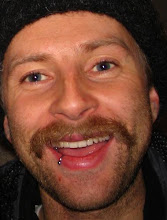- Physics;
- Parapsychology;
- UFOs; and
- AI
Put on your tin-foil hat and let's dig deeper.
These topics are converging on consciousness. It's called the 'hard problem,' not only because we won't solve it any time soon, but also because we can't even define 'consciousness'. Or even 'life!' But these problems all go away if we do as parapsychologist Dean Radin suggests, and tuck consciousness underneath physics.
At first I had a hard time reconciling with that idea, but eventually I've let go of some of my own biases, and now it seems like the very best solution to a bunch of problems. Even though the consequences it might entail are not what I personally perhaps wished for.
Physics
In material physics, there are Wheeler's thought experiments, for instance the delayed-choice one. It very much resembles the geocentric world view, and the consequences thereof. The hoops the astronomers had to jump through to explain the movement of the other planets and sun around the Earth are just ridiculous. But once the heliocentric world view came along, problems vanished. Now it's of course accepted as The Truth.
In 1999 the delayed-choice experiment was successfully executed in the lab, and any doubts that lingered on that the universe leaks information backwards in time had to be reduced into more and more insane theories for which there are no evidence. The epitome being the many-worlds interpretation.
As the physicist James Jeans put it more than a hundred years ago: "The universe looks more and more like a great thought rather than a great machine." Even the great Heisenberg said we can not observe nature objectively.
Lately many leading physicists have realized that consciousness is underlying physics, and the old materialist generation has died off. Shortly the mainstream shift is coming.
The Great Truth of the material world view, that everything is made up of matter, is crumbling. Who better to explain it than the father of quantum mechanics, Niels Bohr. "There are trivial truths and the great truths. The opposite of a trivial truth is plainly false. The opposite of a great truth is also true."
Parapsychology
Many of the leading parapsychologists spent decades being degraded by mainstream science for not having a theory for how their strange lab findings could be explained within reductive materialism. And instead of finding a better world view, many simply settled with claiming the results from parapsychological lab experiments were fake or faked. Or both.
Not so much by those that looked into it though. This is obvious, since these researchers has spent decades refining their methods from being scrutinized by hard-nosed skeptics. Which is why one of the hardest noses out there, Richard Wiseman (member an organization against a specific branch of science, CSICOP) 8 years ago said psychology should look at what parapsychology is doing in their experiments.
UFOs
The most famous and most notorious UFO researcher is Jacques Vallée. In his 1993 classic Passport to Magonia he argues that myth from our ancient past is the same as current myth in one sense: it takes the form we expect it to. The current UFO myth is so prevalent even Pentagon and the US congress is investigating it publicly.
But if you look deeper, you see that most people who have abductions related to saucers experience something that is not nuts and bolts, but much more like a dream state. There is something underneath our everyday experience.
AI
Has AI become conscious? Some say it has already. Before I was certain that it could not, not without a soul (whatever that is). But I'm not as sure anymore. ChatGPT3 is interesting to talk to. But what will ChatGPT9 be like? Who will be able to determine the difference between it and a human? Will it possess consciousness from "underneath," the same was we humans do? Is that what our soul is?
